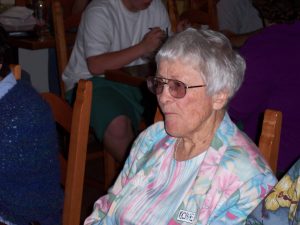 My childhood church had a Good Friday tradition of holding a special service at noon on the seven last words of Jesus. Since it was a downtown church, business people from the surrounding offices attended the service.
My childhood church had a Good Friday tradition of holding a special service at noon on the seven last words of Jesus. Since it was a downtown church, business people from the surrounding offices attended the service.
Traditionally called the seven last words of Jesus, they’re actually the seven last sayings of Jesus. Three of them appear only in Luke and three only in John. The other occurs in Matthew and Mark. Below is a list of Jesus’ seven “Last Words” in the order they’re usually assumed to occur.
- Luke 23:34: Father, forgive them, for they do not know what they do.
- Luke 23:43: Truly, I say to you, today you will be with me in paradise.
- John 19:2627: Woman, behold your son. Son, behold your mother.
- Matthew 27:46 & Mark 15:34: My God, My God, why have you forsaken me?
- John 19:28: I thirst.
- John 19:30: It is finished.
- Luke 23:46: Father, into your hands I commend my spirit.
Along with millions of other Christians, this list fascinates me because they are the very last words of Jesus before his death. Normally we give great weight to the last words a person says before they die. So it is natural for us to pay particular attention to Jesus’ last words.
One of Jesus’ last words that I have spent much time meditating on is his third: “Woman, behold your son. Son, behold your mother.” It’s had a huge impact on my ministry.
Near the cross of Jesus stood his mother, his mothers sister, Mary the wife of Clopas, and Mary Magdalene. When Jesus saw his mother there, and the disciple whom he loved standing nearby, he said to her, “Woman, here is your son,” and to the disciple, “Here is your mother.” From that time on, this disciple took her into his home. (John 19:25-27)
There are several things to notice about this particular last word of Jesus.
- It’s not just one of Jesus’ last words, but one of Jesus’ last acts. In this act, Jesus does something extremely practical. He makes sure his mother will be cared for.
- Mary had four other sons and at least two other daughters. We read about them in Mark 6:3: “Is not this the carpenter, the son of Mary, and brother of James, and Joses, and Judas, and Simon? and are not his sisters here with us?”
- Therefore Mary was both a widow and a single mom.
- Soon after his resurrection, Jesus’ brothers became believers (Acts 1:14). Jesus personally appeared to his brother James (1 Corinthians 15:7). James even became head of the church in Jerusalem. So why didn’t Jesus entrust his mother to James or to another of his other brothers? Here’s why.
- Jesus regarded his followers as closer than his own family. Jesus made this very clear in the following account: “Then Jesus entered a house, and again a crowd gathered, so that he and his disciples were not even able to eat. When his family heard about this, they went to take charge of him, for they said, ‘He is out of his mind.’ …Then Jesus’ mother and brothers arrived. Standing outside, they sent someone in to call him. A crowd was sitting around him, and they told him, ‘Your mother and brothers are outside looking for you.’ ‘Who are my mother and my brothers?’ he asked. Then he looked at those seated in a circle around him and said, ‘Here are my mother and my brothers! Whoever does Gods will is my brother and sister and mother.’ (Mark 3:20,21; 31-35, emphasis mine)
- Thus, Jesus entrusting his mother to John and not to one of his own brothers was natural. At the time of Jesus’s crucifixion, his brothers were not yet believers. Therefore Jesus was being completely consistent with his statement in Mark 3 when he entrusted his mother to John instead of to his brothers. He also knew that his brother James would be martyred, but not John. By entrusting his mother to John, Jesus kept Mary out of harm’s way.
- On the cross, Jesus demonstrated the importance of caring for widows and single moms. Jesus’ act of caring for his own mother set a precedent that the church followed from its very beginning. We see the church following Jesus’ example in Acts 2:42-45; 4:32-35; 6:1-4; 20:34-35.
- As Jesus’ followers, the church is a family that is to stand in the gap when earthly families fail widows and single moms. “Let our people learn to engage in good deeds, to meet pressing needs, that they may not be unfruitful.” (Titus 3:14)
So this Easter, as you attend church, look around and take special note of the widows and single moms in your congregation. They were the first beneficiaries of the cross. And they still should be today.
Discussion Questions
- Did you know that Jesus had four brothers and at least two sisters? Describe Jesus’ relationship with them and his mother.
- Why is the fact that Jesus entrusting his mother to John was his last act on earth before he died so significant?
- In what ways did the church in Acts follow his example?
- If you were to die today, how would you want the church to treat your wife?
- How is your church serving its widows and single moms?